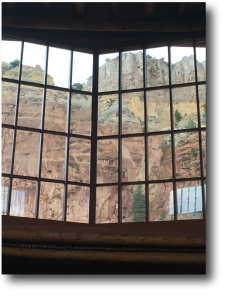At some point, each of us will find ourselves in the landscape of death. Some of us will be introduced to death through a medical diagnosis (for ourselves or a loved one); others work daily with death in the medical and hospice industries. We may meet death for the first time through the multitude of endings offered throughout a lifetime – the end of a relationship, a job, or a home situation. No matter where and how we enter this landscape, we will need help navigating the terrain. We need information, we need guidance, and we need support in order to die consciously.
Fortunately, this is one of the oldest areas of human inquiry and includes the most
 consistently asked questions of all peoples from all times and places: What happens to us when we die? How does it feel to be dying? Where can I learn about all this? As we encounter death, we find ourselves seeking manuals that can help guide us through this territory. And these manuals exist everywhere: in religious traditions, in psychology, in spiritual rituals, in philosophical debates. The challenge is not in finding sufficient information and guidance as we create conscious death. Rather, the complexity arises when we attempt to integrate the vast amount of information available to us.
consistently asked questions of all peoples from all times and places: What happens to us when we die? How does it feel to be dying? Where can I learn about all this? As we encounter death, we find ourselves seeking manuals that can help guide us through this territory. And these manuals exist everywhere: in religious traditions, in psychology, in spiritual rituals, in philosophical debates. The challenge is not in finding sufficient information and guidance as we create conscious death. Rather, the complexity arises when we attempt to integrate the vast amount of information available to us.
The Way of Conscious Death helps us find the assistance we need as we create our own experiences of dying consciously. The goal is to integrate the conversations, to weave together the vast amounts of information from all realms: medical, psychological, spiritual, and social in order to grapple with the question, “How do I do this dying?” The Way of Conscious Death acts as a gateway through which to explore all the avenues of assistance available to us as we journey this pathway of conscious death and dying. It gathers together the most pertinent and valuable guidance from contemporary medical sources, from hospice education, from the world’s wisdom traditions, and from modern spiritual guides. May all who find themselves meeting death (for the first time or as a reunion) find help with dying.